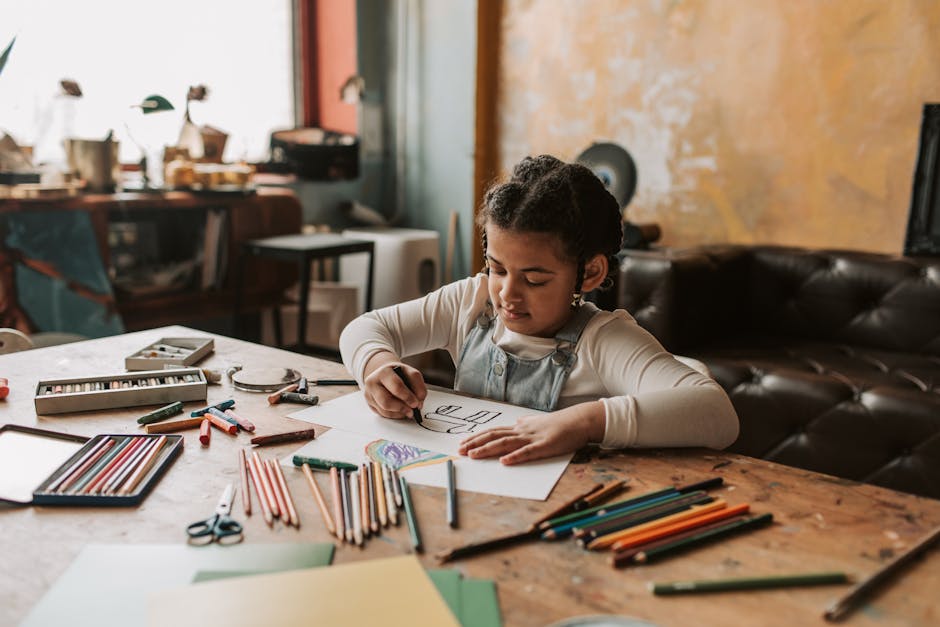Engaging in hobbies and crafts offers a compelling pathway to skill acquisition, transcending mere leisure activities. This pursuit extends beyond simple enjoyment; it becomes a fertile ground for cultivating diverse abilities, fostering personal growth, and even enhancing professional prospects. The process of learning and mastering a craft inherently involves the development of numerous skills, both tangible and intangible.
A primary avenue for skill development lies in the acquisition of technical proficiency. Consider woodworking, for instance. Beginners grapple with basic tools like saws and chisels, gradually progressing to more intricate techniques like joinery and finishing. This journey necessitates the development of fine motor skills, precision, and an understanding of material properties. Similarly, knitting or crochet demands dexterity, patience, and an eye for detail as individuals master different stitches and patterns. The complexity increases with the ambition of the project, leading to ongoing skill refinement. Painting, whether oil, watercolor, or acrylic, cultivates color theory understanding, brush control, and composition skills. Each craft presents a unique set of technical challenges that, when overcome, translate into demonstrable skill improvement.
Beyond the technical, hobbies foster the development of crucial cognitive skills. Problem-solving is paramount. Whether it’s deciphering a complex knitting pattern, troubleshooting a malfunctioning piece of machinery in a model-building project, or adapting a recipe to available ingredients in baking, hobbyists continually encounter and resolve challenges. This process sharpens critical thinking, analytical skills, and the ability to devise creative solutions. Furthermore, many hobbies demand meticulous planning and organization. A large-scale quilting project, for example, necessitates careful fabric selection, pattern design, and meticulous cutting and piecing. This translates into improved organizational abilities and attention to detail, skills valuable in numerous aspects of life.
Creativity and imagination are undeniably nurtured through hobby engagement. While some crafts follow strict patterns and instructions, the opportunity for personalization and creative expression remains prevalent. Altering a sewing pattern, experimenting with unconventional color combinations in painting, or improvising a musical piece these acts foster innovation and adaptability, skills increasingly valued in a dynamic world. The very act of transforming raw materials into something unique and personally meaningful is an exercise in creative problem-solving and self-expression.
Furthermore, hobbies often contribute to the enhancement of softer, less tangible skills. Persistence and patience are crucial. Mastering a challenging craft requires dedication and the ability to overcome setbacks. A failed attempt at pottery or a frustratingly tangled knitting project necessitates perseverance and a willingness to learn from mistakes. These experiences cultivate resilience and a growth mindset, promoting a positive approach to challenges beyond the realm of hobbies. Similarly, many crafts involve collaboration and community engagement. Joining a knitting circle, participating in a model-building club, or attending a pottery class exposes individuals to social interaction, fostering teamwork, communication, and interpersonal skills.
The connection between hobbies and professional development is also noteworthy. Although not always directly transferable, the skills honed through hobbies can often translate into improved performance in the workplace. The meticulous attention to detail cultivated through miniature painting could benefit a surgeon; the problem-solving abilities sharpened through coding could improve a project manager’s efficiency; and the communication and teamwork fostered through collaborative crafting could enhance a leader’s effectiveness. A portfolio of personal projects, showcasing skill and creativity, can even enhance a job application or provide a competitive edge.
However, it is essential to acknowledge that skill development through hobbies requires conscious effort and engagement. Simply dabbling in a craft without dedicated practice will yield minimal results. Setting realistic goals, seeking feedback, and continuously challenging oneself are crucial for maximizing the learning process. Utilizing online resources, attending workshops, or engaging with online communities can significantly enhance skill acquisition. The internet provides a wealth of tutorials, patterns, and expert advice readily available to enhance the learning experience.
In conclusion, the assertion that hobbies contribute significantly to skill development is undeniable. From the acquisition of technical proficiency and the honing of cognitive abilities to the cultivation of soft skills and the potential for professional advancement, the benefits are multifaceted and extensive. The dedication and persistence required to master a craft, whether it’s woodworking, knitting, painting, or any other endeavor, inevitably results in personal growth and the acquisition of valuable skills applicable to various aspects of life. The engaging nature of hobbies makes this learning journey not only rewarding but also immensely enjoyable. Therefore, embracing a hobby isn’t just a leisure pursuit; it’s an investment in oneself and one’s future.
